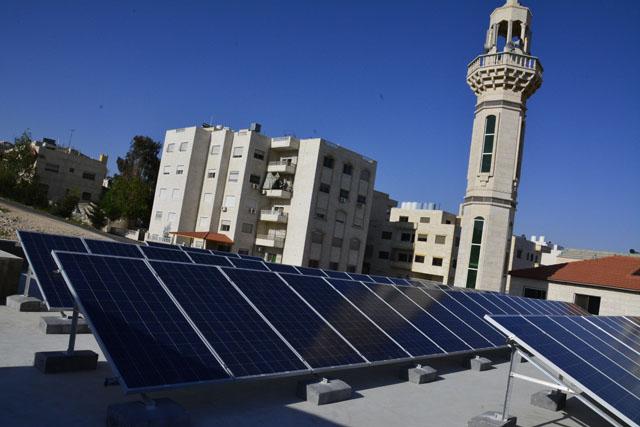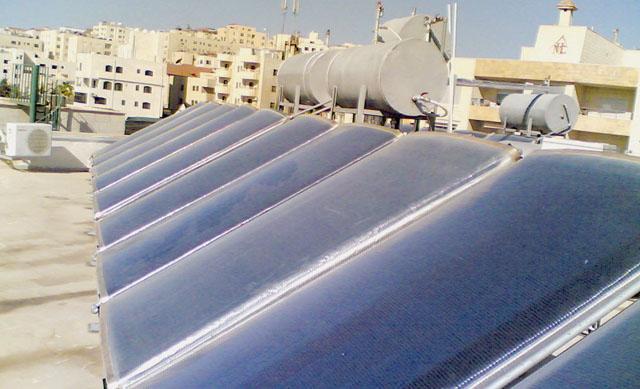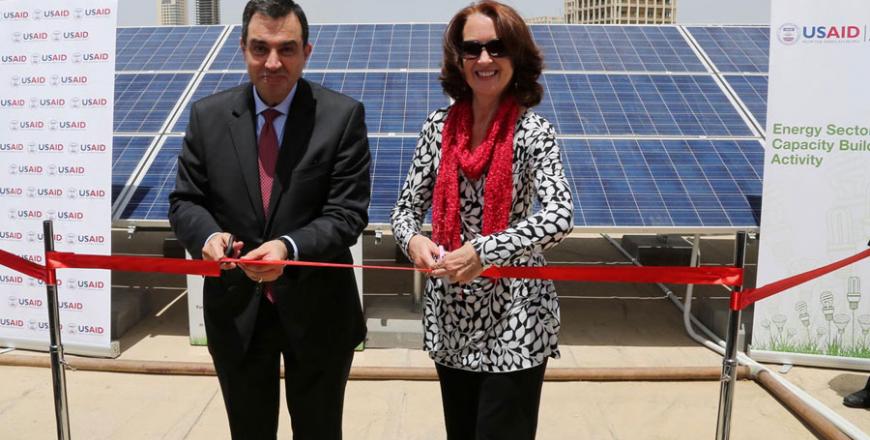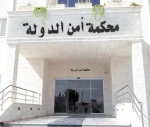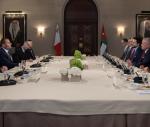You are here
Using solar power to generate electricity: an uptrend that ‘needs further gov’t support’
By Mohammad Ghazal - Jul 22,2015 - Last updated at Jul 22,2015

Solar panels are seen on the roof of a house in Amman recently. Use of solar power to generate electricity is increasingly common in Jordan, experts say (Photo by Amjad Ghsoun)
AMMAN — Installation of solar systems to generate electricity is gaining momentum in Jordan with a wide range of entities following the trend, according to experts and officials.
In Jordan, which imports about 97 per cent of its energy needs, there is a need for further support to increase such a trend, the experts said.
“Embassies, factories, houses, mosques and some industrial facilities, as well as schools and universities are nowadays installing such systems, a move which helps cut the country’s energy bill and makes use of an available local source of energy,” Haidar Gammaz, spokesperson of the Ministry of Energy and Mineral Resources, told The Jordan Times recently.
Jordan, which has one of the highest annual daily averages of solar irradiance in the world, with an estimated 330 days of sunshine in the year, is on the right track of implementing a strategy to increase renewable energy contribution to the overall energy mix to 10 per cent by 2020.
“Larger-scale renewable energy projects are under way and several others are in the pipeline and expected to be announced soon and early in 2016,” he said.
According to official figures, there are several small-scale entities, including households, mosques, schools and small industrial facilities, that already generate solar electricity with a total capacity of 30 megawatts.
Jamal Gammoh, head of the Lower House Energy Committee, said Jordan is on the right track in this regard, but more is needed.
“We are seeing several facilities following this trend and installing these systems, which is great for the environment and for the budget as electricity for many end-users is still subsidised,” said the lawmaker in remarks to The Jordan Times.
“We need to see more support from the government as not many families are capable of installing such systems. On the long term, it will be more useful for the government to support installing such systems rather than keep subsidising electricity. We have sunshine around the year and wind too,” said the lawmaker. According to energy experts, wind speeds in the country are as high as 7.5 metres to 11.5 metres per second in hilly areas, which is conducive for power generation.
Mohammad Salman, one of the users who already installed such a system, said: “After I installed the system my electricity bill dropped by more than 70 per cent. This is a great system.”
“It costs about JD8,000 [per unit]. I think this is still costly for several people, but it is a worthy investment and the government should support those who want to install solar panels if it wants to address the crisis of energy in Jordan,” said Salman, who installed the system at his house in Tlaa Al Ali.
“It is a great system, very clean and in a few years on I will get the return on my investment. I use electricity at home without having to worry about the bill nowadays,” he said.
Related Articles
A three-month campaign began this week to encourage households to install solar photovoltaic systems to generate electricity at home, which will significantly reduce the country’s energy bill.
Households in Jordan can save up to 90 per cent of their monthly electricity bill by installing photovoltaic systems to produce energy from solar power, according to organisers of a campaign to encourage the usage of such systems at homes.
AMMAN — A new solar power project launched Tuesday will help the Ministry of Planning and International Cooperation reduce its annual electr


